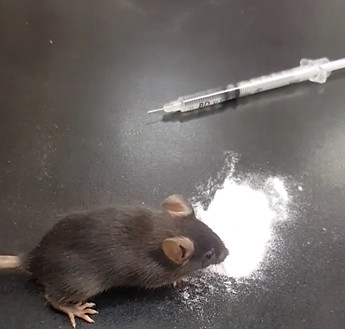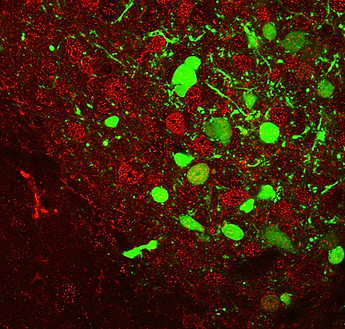Research
Research Overview
Explore The Brain

Systems Neuroscience to
elucidate neural mechanisms
underlying compulsive seeking
behavior toward drugs of abuse
01/
Drug addiction and substance use disorders are characterized by uncontrolled consumption, although abuse can lead to life-threatening series of adverse consequences, including the compulsive stage. However, conversion mechanisms from recreational drug use to compulsive seeking remain elusive. Our goal is to employ state-of-the-art techniques such as ex vivo neurophysiology and optogenetics-driven circuit manipulation to understand how drug-seeking behavior arises and determine reward circuits from drug addiction, using animal models, particularly through contingent self-administration paradigms.

Cellular approaches to define neuromodulation for emotional memories
02/
Emotional memories from aversive or appetitive experiences could be mediated and controlled by drastic alteration in synaptic transmission and neuronal connectivity. Recent studies have provided ample insights into the synaptic plasticity underlying acquisition, expression and extinction of fear memory, which results in observable behavioral changes and autonomic responses. To better understand emotional memory, our goal is to elucidate specific neuromodulation imposed on each stage of aversive memory. In addition, our lab is continuing to identify cellular identity for conceivable interaction between aversive and appetitive memories within the amygdala and its connected regions.

03/
Molecular and cellular underpinnings for neuropsychiatric disorders
With the recent advancement in genomics, proteomics and epigenetics, psychiatric disorders including PTSD (Post-Traumatic Stress Disorder) can be assessed with unprecedented detail. However, current mainstream investigation is still limited to phenomenal features. Our current research is focused on cellular and physiological changes in neural circuits leading to maladaptive behaviors of neuropsychiatric disorders and thereby providing novel insights and potential treatments. In particular, we focus on bidirectional connection between amygdala and hippocampus, dysfunction of which can elicit PTSD-like behaviors.
